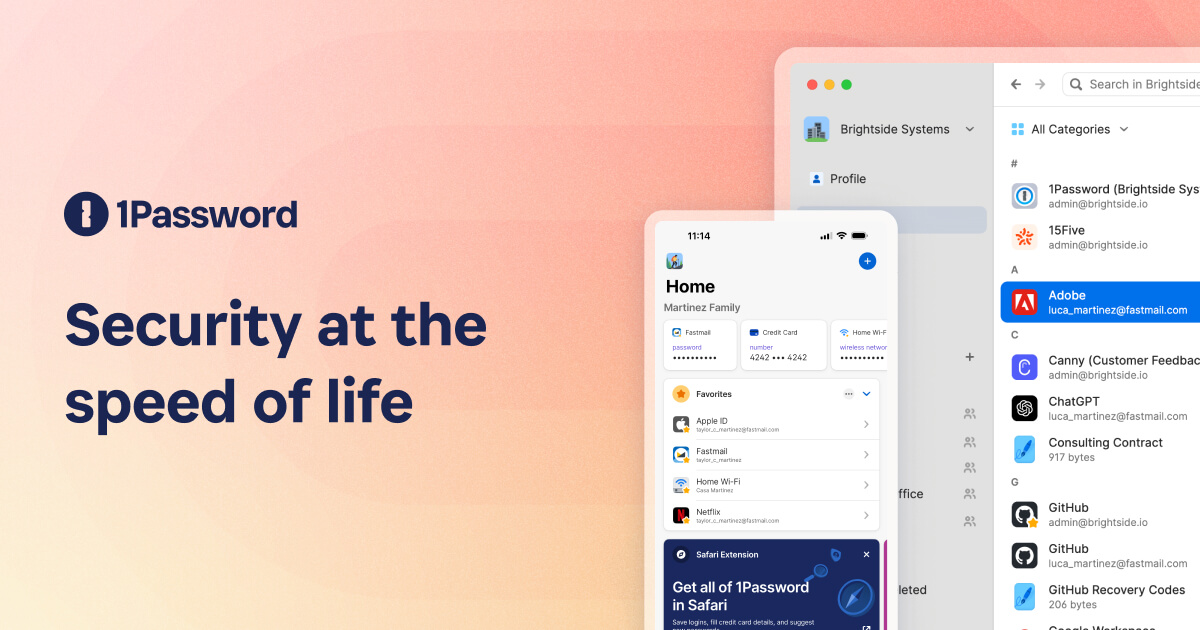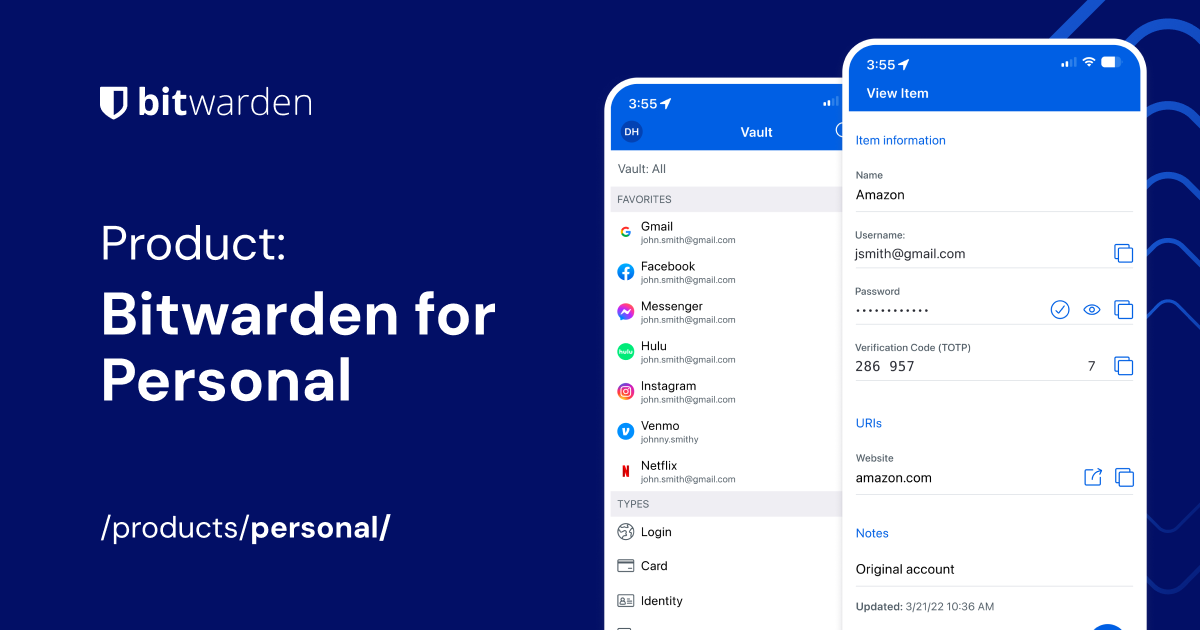Digital Security
Don't make it easy for hackers to make you a target. Use these easy steps to protect your online world.

These days, staying safe and secure online is more important than ever, with hackers and scammers constantly evolving their tactics to target unsuspecting victims. Here is a set of essential tools and practices that can help you protect your information and privacy.
1. Use a password manager
One of the most important steps to staying secure online is using a password manager. Password managers not only help generate strong, unique passwords for each account, but they also securely store them so you do not have to remember them yourself.
1Password is a fantastic password manager, especially for families and pro users, but there are other options, including password managers built into common browsers.
2. Enable Multi-Factor Authentication
While a password manager can help you use more secure passwords, they can not help if someone hacks your online account providers themselves. Multi-factor authentication (MFA), also referred to as two-factor authentication (2FA), significantly increases the difficulty for hackers trying to access your accounts. The 4 main types of MFA tokens are (in order of least secure to most secure):
- SMS-based one-time passcodes (OTPs)
- small hardware token
- push notification via an app
- software-generated tokens (codes or biometrics)
Check your most popular accounts and enable MFA on as many as possible.
3. Use an ad blocker
Most websites embed ads from a third-party service with little vetting or validation, so there is no guarantee that an ad you see on a known website is legitimate and safe. By blocking ads, trackers, and malware, ad blockers make your web browsing experience safer and faster.
4. Enable SIM PIN protection
SIM swapping is a type of fraud where scammers trick your mobile carrier into transferring your phone number to a new SIM card in their possession. Once they have control of your phone number, they can reset your passwords, gain access to your accounts, and steal sensitive information.
To protect against SIM swapping fraud, enable a SIM PIN code with your mobile carrier and be cautious of unexpected communications from them. By implementing these measures, you can reduce the risk of falling victim to cyber attacks and fraud. Stay proactive and stay safe online.
By following these easy steps, you can significantly enhance your online security and keep your information safe from cyber threats. Stay tuned (and subscribe!) for future tips to protect your digital world.
Kartik's Newsletter
Science, tech, personal updates, no spam.



/cdn.vox-cdn.com/uploads/chorus_asset/file/23952360/HT020_securityPrivacy_0001.jpg)




